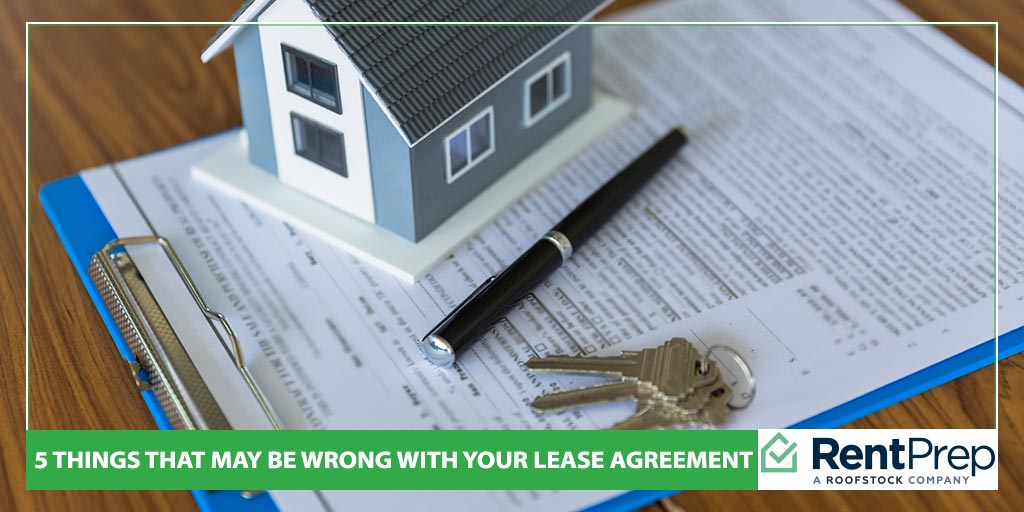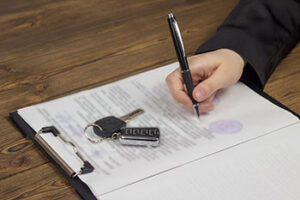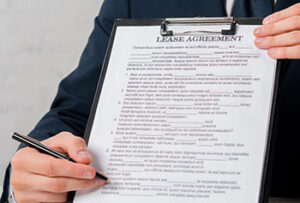
As a landlord you are used to dealing with replacing things that no longer work well for you, from appliances to tenant screening companies. The lease agreement is the most important tool you have to be a successful landlord, but sometimes it is difficult to tell if this important document is doing everything you want it too or need it to. Don’t be afraid to find or create a better lease agreement document so that your next landlord/tenant experience ensures you get exactly what you need.
Here are 5 things that should clue you in on whether or not you need to improve your lease agreement:
1. You got the lease agreement straight off the internet.
While there are some pretty comprehensive lease agreement templates out there, far too many landlords just use a search engine and print off the first lease agreement they come across. Not only is this a recipe for trouble, you won’t be able to customize it to your specific property. Of course, using a lease template to get started is an excellent way to get your mind focused and some of the important aspects down on paper. However, don’t ever offer a tenant an internet lease agreement without customizing it first.
2. It doesn’t include essential information.

All leases should have certain basic components included, but you’d be surprised how many landlords who simply don’t know any better skip some of the most important parts of a lease. Critical terms include the monthly rent amount, the length of time of the lease (including time of day a move out must take place), the number of residents who may live in the rental unit, the names of all of the tenants, the security deposit amount and when it will be refunded upon move-out, and a list of any fees related to the tenancy. The lease should also be signed and dated by both parties, but an astonishing number of lease agreements don’t bear official signatures.
3. It glosses over specifics about basic regulations.
Lease agreements must have clear and easy-to-understand clauses that spell out the rules about residency. You can never assume that a tenant will “just know” something unless you specifically state it and you definitely cannot expect everyone will default into automatically caring for the property and living in it according to your own personal standards. Worse, the courts may agree with the tenant in the event of a dispute about something not specifically named in the lease. Key areas to address include pets, maintenance procedures, landlord entry, late fees, pest control responsibilities, subletting, grill and patio rules, and whatever else you need to ensure proper care of the property. Don’t forget to include details about what happens if the lease is violated, either by nonpayment or behavior.
4. It is too long and overly wordy.

While it’s important to include specifics, a lease agreement doesn’t have to be 20 pages long. A concise lease uses simple and clear language that even the newest landlord and tenant should be able to understand. Way too many leases are filled with legalese that few people can comprehend, and a lease that is too dense and long will discourage everyone from reading it and understanding the rules. This will almost always lead to conflict down the road, whenever tenants don’t know what is in the lease.
5. It contains rules that are against city, state or federal laws.
Just because a landlord wants something to take place at a rental property and specifies it in a lease agreement, doesn’t make it enforceable. There are plenty of landlord-tenant laws in place that help to govern the interests of both parties. However, ignorance of these laws can get landlords into legal trouble if they try to get around them, either intentionally or inadvertently. Examples of this might include banning all animals, including service animals, or stating the landlord can enter the unit at any time without proper notice.
6. Name spelled wrong on lease
It happens enough that we decided to add an additional issue with leases.
This is not typically a big issue but it can be a technicality that a judge may use in the court of law. It’s important to get an updated lease with the correct name on it before any issues arise. If there are already issues and the landlord and tenant are going to court you may want to consult with a local attorney on how a misspelling or wrong name on the lease will affect any court outcomes. It can also be helpful to see if there is anyone local that has familiarity with the courts to see how they handle such cases. Consider calling the town clerk to see if they have any insights.
When it comes right down to it, a lease agreement simply needs to be specific enough to protect you and your property wherever you are located. If you want to prevent future disputes and disagreements, make sure that when you, the tenant or a judge asks, “What does it say in the lease agreement?” that you and your position are completely covered. It’s a good idea to give your lease agreement to a landlord-tenant attorney to review, or else pay one to draft up a lease agreement to ensure you are protected and haven’t left anything critical out of the single most important document of your real estate and investment business.

